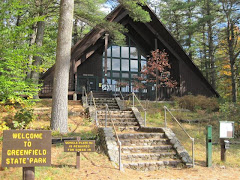Module 1: Next Generation of Distance Education
All four authors in question (Moller, Huett, Foshay, Coleman and Simonson, 2008) advocate that distance education (DE) needs to evolve. They all agree that DE is powerful, useful and can save on resources like time, energy, location etc. They agree that DE isn’t going to go away and nor should it; it would be a wasted asset not to focus on enhancing such a tremendous resource and learning tool.
Moller et al. (2008) advocate strongly for an assessment piece to be developed. They espouse that for quality success for both the learner and the instructor of DE there needs to be a concrete was to evaluate the processes being utilized in DE; to be able to adequately assess the outcomes and the learners’ experiences with DE and to measure whether or not the desired goal is reached by utilizing such a program.
Simonson advocates more for the development of DE. He contends that DE needs to take into account the learner, the teacher and the resources while being mindful of the fact that all three of these aspects are separated by geography and time. He states that we cannot “duplicate” what is being done in the classroom. That DE needs to develop an “equivalency” (Simonson, 2008) for student learning. That location, time, resources, culture, education, etc. all play a part in DE and that without the face-to-face contact, the instructor is left to address these somehow. Developing an “equivalent” experience for learners is Simonson’s contention.
I think that all the authors have valid points. I completely agree with Simonson, that DE cannot be conducted or construed the same as face-to-face learning environments. They are not the same and therefore should not be treated the same. I also think that Moller et al. (2008) are correct in that we need some valid way of assessing/measuring the effectiveness of DE. Using the same measurements we use for face-to-face learning is not adequate, nor comparable. I think taking these ideas and utilizing them together is the next step for DE.
References:
Huett, J., Moller, L., Foshay, W., & Coleman, C. (2008). The evolution of distance education: Implications for instructional design on the potential of the web. TechTrends: Linking Research & Practice to Improve Learning, 52(5), 63-67. doi:10.1007/s11528-008-0199-9.
Laureate Education, Inc. (Producer). (2008). Distance education: The next generation featuring Dr. Michael Simonson. United States: Walden University. Podcast retrieved from http://sylvan.live.ecollege.com/ec/crs/default.learn?CourseID=4199707&Survey=1&47=4862829&ClientNodeID=984645&coursenav=1&bhcp=1
Laureate Education, Inc. (Producer). (2008). Equivalency theory featuring Dr. Michael Simonson. United States: Walden University. Podcast retrieved from http://sylvan.live.ecollege.com/ec/crs/default.learn?CourseID=4199707&Survey=1&47=4862829&ClientNodeID=984645&coursenav=1&bhcp=1
Moller, L., Forshay, W., & Huett, J. (2008). The evolution of distance education: Implications for instructional design on the potential of the web. TechTrends: Linking Research & Practice to Improve Learning, 52(3), 70-75. doi:10.1007/s11528-008-0158-5.
Moller, L., Foshay, W., & Huett, J. (2008). The evolution of distance education: Implications for instructional design on the potential of the web. TechTrends: Linking Research & Practice to Improve Learning, 52(4), 66-70. doi:10.1007/s11528-008-0179-0.
*************************
For Module 1, I responded to the following blogs:
Amy Cantymagli
http://acantymagli.blogspot.com/
Lynne Butkiewicz
http://waldentechnology.blogspot.com/
*************************
Wednesday, June 16, 2010
Subscribe to:
Post Comments (Atom)



You put a lot of thought into the blog great job! There is no question that distance education needs to evolve. With many teachers feeling they are overworked and underpaid there are a lot of teachers that don’t want change and certainly don’t like it. To me technology makes my job easier and fun at the same time as I think of new creative ways to raise student achievement and participation in my lessons.
ReplyDeleteAs you state Moller advocates for an assessment piece. This is extremely important in the teaching and learning environment. Without assessment we wouldn’t know where to improve things or what we must re-teach for mastery.
I would think that if you have an online class and an f2f class and teaching the same curriculum could somehow assess students learning the concept. What do you think?
Christine...
ReplyDeleteNice Job!
I agree. And I believe that online can be as good as F2F but all the parts need to be integrated. This is easier to do in the classroom but if we plan to be in education over the next twenty year or so we are going to have to acclimate to an environment such as this.
Lynne & Richard:
ReplyDeleteLynne,
I think that to assess student learning, you cannot use the same tools for online as you use for f2f. And I think the approach must be different as the environments are different. In f2f, I can verbally quiz my students on the spot to assess their learning, either they can answer my questions or not. In an online environment, I cannot do that unless I am in a “real-time” environment. There are some assessments that can be similar, class presentations for example can be taped and the video uploaded, but it still is missing the Q&A aspect of it. I’m sure as we move through this we will learn how to develop better assessment tools for our distance education learners.
-Christine
Richard,
I completely agree. Thank you.
-Christine
Hi Christine!
ReplyDeleteYour analysis is fairly close to how I see it as well. Working now in distance education, I see the need for faster and more efficient two way communication. Personally, I think this is the key to really and properly bridging the distance and time barriers that present themselves in distance education. It is certainly interesting to imagine the direction of how things will really evolve. I know I hardly expected the internet to develop how it has. I think it does well to add new interest and slant to education generlly.
Bill Goldstein
Bill,
ReplyDeleteThank you!
-Christine